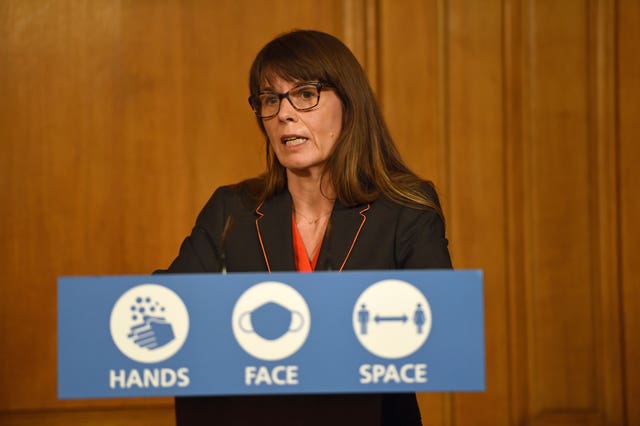
Tracing contacts of Covid cases could be being hampered because of people’s reluctance to answer calls from an unknown number, a public health expert has suggested.
Dr Susan Hopkins, medical adviser to NHS Test and Trace, suggested that the system was struggling to reach contacts of positive cases due to people not answering their phones.
Data released last week showed that two in five close contacts of people who tested positive for Covid-19 in England are still not being reached by the NHS Test and Trace system.
Some 60.3% of close contacts of people who tested positive were reached through the system in the week ending October 21.
For cases managed by local health protection teams, 97.0% of contacts were reached and asked to self-isolate in the week to October 21.
But for cases handled either online or by call centres, this figure was 58.1%.
Asked about issues with the system, Dr Hopkins told BBC Breakfast: “Firstly, the teams make every effort to call individuals. We do need to get people’s contact details from the primary case.
“Usually, about one in five individuals, there’s no contact details given. So we struggle to find that individual and then cases through the system.
“People don’t answer their phones, people don’t want to get a contact from an unknown number.
“And that’s part of the reason why there’s increasing local contact tracing, working with directors of public health and local councils, so that their local system can find some of these individuals that the national system cannot.”

A number of experts have urged ministers to use the forthcoming lockdown to ensure that the Test and Trace system is up to scratch.
On Saturday, Dr David Strain, senior clinical lecturer at the University of Exeter, said: “In order to minimise the impact of the lockdown on the mental and physical health of the nation as well as the economy, this needs to be accompanied by a clear exit strategy, including an overhauling of the Test and Trace system to ensure it is fit for purpose.”
On the lockdown, Dr Hopkins, who is also deputy director of Public Health England’s National Infection Service, said there was a “fine balancing act” about when to implement a lockdown.
She told Times Radio Breakfast: “I think that even if we had done a lockdown earlier, it’s likely we would probably need one again later on. So there’s a fine balancing act about when this occurs.
“What the lockdown is there to do is to reduce the number of cases and ideally half them, or even reduce them further than that.
“So what we need to be able to do is see that now, and see that we’re able to effectively do that, and that means the whole of society to be ready to take the steps with us to reduce our transmissions and reduce our contacts.”


Comments: Our rules
We want our comments to be a lively and valuable part of our community - a place where readers can debate and engage with the most important local issues. The ability to comment on our stories is a privilege, not a right, however, and that privilege may be withdrawn if it is abused or misused.
Please report any comments that break our rules.
Read the rules hereLast Updated:
Report this comment Cancel